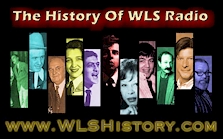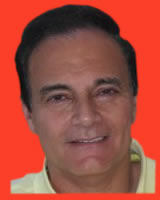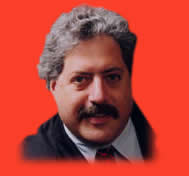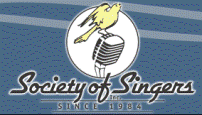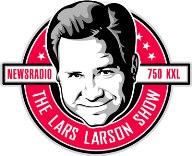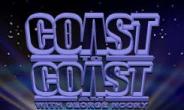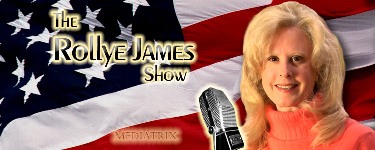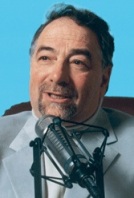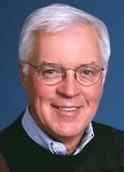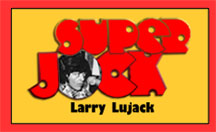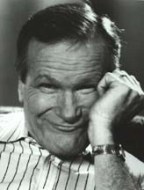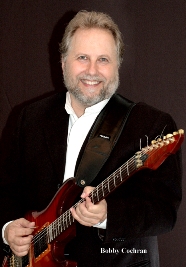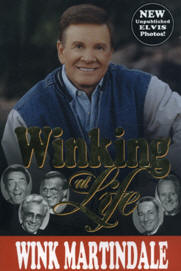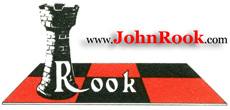
|
Katie Ellen and the Double K
My very first job on the air came at KASL-New Castle, Wyoming. As the stations lone disc jockey, I signed the station on at 6:00am and off at 11:00pm, with an hour off for lunch at noon while the station aired "the noontime news" delivered by the station manager, Roy Marsh. Virtually every kind of music was programmed from polka's to big band to country to early rock. I especially looked forward to introducing artists my buddy Eddie Cochran had introduced me too during my previous years in California. Don & Phil Everly, Buddy Holly, Fats Domino, Marty Robbins, Johnny Cash and my "blue grass" favorite Mac Wiseman got plenty of airplay on KASL.
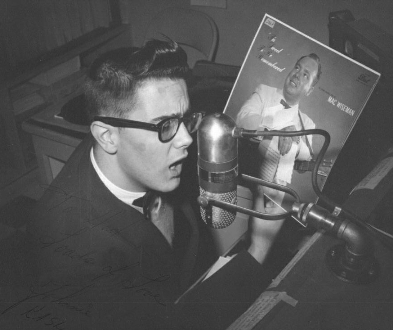
Johnny Rowe - John Rook
(Notice my attention getting crew cut with a wave up front)
Forty years later while revisiting my youth, I stopped in New Castle, Wyoming to visit KASL. I was surprised to see the same studio equipment still in use in the studio.
At 580 on the dial, KOBH offered coverage over five states. Signing on as a brand new radio station in 1958, its 1,000 watts penetrated the mountainous Black Hills and the surrounding prairie of five states better than any competitor.
With radio "stunts" in their infancy, I managed to spend three full weeks living and broadcasting daily from a platform high above the river in downtown Hot Springs. I was not permitted to "come down" until we reached the goal of thousands of dollars for the Crazy Horse Pageant.
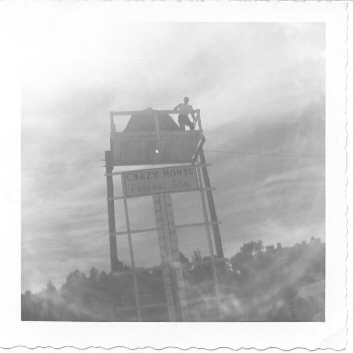
Still in its infancy, television had just begun to feed the new daily TV dance party American Bandstand with Dick Clark into our homes five days a week. Often the music programmed on Bandstand came from record companies in the east that considered South Dakota a foreign country, forcing us to program a �cover� version.
Randy Wood�s Dot records gave us Pat Boone and other more acceptable �white� artists� to program in place of Little Richard and others. Columbia, Capitol and Decca were the majors who did supply new releases to radio stations at an annual fee, not something a small market radio station could afford. With the exception of a west coast promotion man named George Jay supplying us with regular mailings of 45rpm record�s, our only other source was from sparse mailings from recording artist themselves.
Al Martino, a former Arthur Godfrey �Talent Scout� TV show winner, called to thank us for airplay of his 20th Century Fox release at the start of his singing career. I would remember him with airplay throughout my career. Lunching with Al at his Beverly Hills home in the years ahead, I�d learn of his upcoming role in The Godfather, a role that placed him in movie history.
My buddy Eddie Cochran checked in to be interviewed on a regular basis and a young Canadian teenager, Paul Anka and I would begin a friendship of four decades. Connie Francis, Brenda Lee, Jim Reeves, Patsy Cline, Johnny Horton and others were interviewed on my �Records n� Rowe� daily afternoon radio show.
When I asked Jim Reeves what he thought of rock and roll music, he said, "Everyone to their poison." Away from the microphone, I asked Patsy Cline if that was her birth name. She said, "No, my last name came from my first husband and I'm currently married to a prick...named Dick". The lady's vocabulary was as "salty" as any man I knew at a time when females just didn't speak that way.
Music trade CashBox began listing our picks along with those of major market radio station�s, it was an exciting time at the birth of rock n� roll and the rebirth of radio.
I could only hope to land a job at one of those giant signals that dwarfed KOBH coverage in the hours of darkness. Most nights I searched the nighttime airwaves for KOMA-Oklahoma City; KIOA-Des Moines; KTLN-Denver; or Lucky Lager Dance Time on KSL-Salt Lake City. Those radio stations featuring a Hit Parade format were capturing large audiences. Dick Clark, a radio disc jockey in Philadelphia was making American Bandstand into a daily addiction, a forerunner of another era�s MTV.
I worked to perfect an audition tape before mailing it to WLS and KTLN. Several weeks passed before I eagerly opened a WLS envelope addressed to me hoping for a positive reply to my application. Instead a form letter merely advised receipt of my package and that WLS assumed no responsibility for any unsolicited material.





Eddie Cochran Al Martino Dick Clark Patsy Cline Paul Anka
Having received no reply from KTLN, I gathered all my courage and placed a telephone call to the stations program director, George Wilson. Explaining I was �looking for job,� I asked if he knew of any �work� in the Denver market. �Sure� said a jovial Wilson, �there are plenty of jobs here in Denver, but you have to be here to get one�.
I resigned my duties at KOBH and caught a bus to Denver.
Two days later George Wilson�s attempt at humor deflated my hopes, as he jokingly explained any �jobs� he had referenced weren�t necessarily in radio. He did however tip me to a possible opening at KALL in Salt Lake City, where he would contact me a few months later with an offer to return to Denver.
After purchasing a bus ticket in Salt Lake City, I arrived in Denver with only a few dollars in my pocket. Walking from the bus depot in downtown Denver to the station, I met with my new boss, George Wilson. Hearing of my destitute condition, he offered a cot in the basement of his home that I gratefully accepted. Its something I remembered for the remainder of my career, as I often provided lodging and finances to talent down on their luck.
I immediately replaced a disc jockey named Dave Moorehead, who would move on to a job in Tucson. Years later he would create KMET-Los Angeles.
My arrival at KTLN would begin a long term relationship with the station for more than a dozen years starting as a disc jockey and again as KTLK became a client of my consulting company, John Rook & Associates. As a DJ, I replaced Guy Williams, who much later would be known by another name, L. David Morehead, credited for introducing Southern Californian�s to FM via KMET. The call letters of KTLN came from the name of Katie Ellen, an early Denver radio personality.
Joining Henry Busse Jr., Arch Andrews, George Wilson and Ray Durkee at KTLN, our competition came from five other Denver radio stations programming the days hit music. Leading the pack was KIMN, usually with KTLN, KMYR, KICN, KOZY and KDAB trailing behind.

KIMN, created by Cecil Heftel took Denver by storm and continued to lead the market when purchased by a Colorado Springs radio owner, Ken Palmer. The station not only played the hits, news coverage was excellent. As KMYR announced the give away of a new car each week, KTLN matched it with a new Cadillac, only to be checkmated by KIMN with their �95 car give-a-way�. Both Ken Palmer and Cecil Heftel became clients of my consulting company in the years ahead.
KTLN�s audience awakened each morning to the screeching of a myna bird and a number of other attention getters provided by Henry Busse Jr. His father had another generation dancing to his hit recording of �Hot Lips�. Every day at the crack of dawn, Henry would transport his �talking bird� to work in a giant cage stuffed in his miniature automobile. Teaching it to repeat the stations call letters, Henry had some reason for concern upon learning someone was also teaching the bird some words not acceptable for broadcast.
Henry and Arch Andrews worked together at Omaha�s KOWH, with Henry following Arch to Denver and KTLN. Arch, a very composed gentleman who never seemed the disc jockey type, followed Henry on the air. It would take someone of Arch�s calm demeanor to accept the responsibility of cleaning up the control room following Busse�s Birdman of Denver act each day. With wet cloth and paper towel in hand, unbeknown to the listener Arch would scrub the control room counter and do his best to cleanup any mess left by the hurried departure of �Busse and his damn bird�.
Shortly, George Wilson departed to program in Charlotte and Baltimore before heading Bartell Broadcasting�s programming efforts. Radio�s Buzz Bennett and Jack McCoy would be among those George introduced to the industry.
Joe Finan, one of a half dozen big city disc jockeys spotlighted in the 1960 payola crackdown, was hired to become program director of KTLN. He made a sizeable contribution of my programming career before returning to Cleveland/Akron where his career as a talk show host would kick off a successful twenty year run.
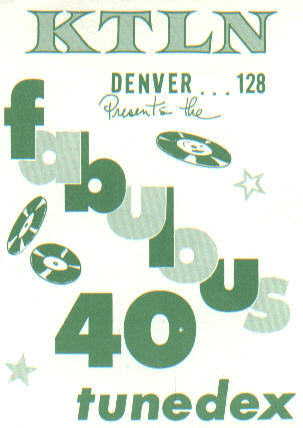
Arch and Henry resigned to put a new radio station on the air in Broomfield, Colorado, with Perry Allen arriving for a short stay before moving on. Soon, his fame would extend to southern California�s KRLA, where his arrival was one of the worst kept secrets of radio contesting. Bill Warren and Jack Diamond also joined KTLN as DJ�s.
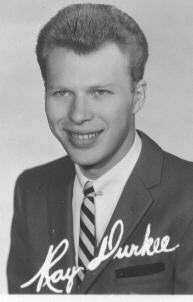
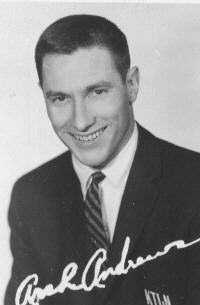
Ray Durkee Arch Andrews
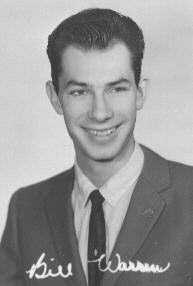
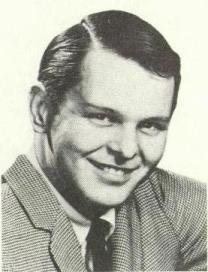
Bill Warren Dex Allen
Finan recruited three Californian�s, Tom Breneman Jr., son of radio�s original Breakfast Club host, Claude Turner, who would later join me at KQV in Pittsburgh with the name Dex Allen and �Downtown Stan Brown� who would join Al Julius in the KTLN newsroom. A Texan, �Big Steve Risen�also came aboard.
Joe introduced me to Marshall Chess, son of Leonard Chess, founder of Chess, Checker and Argo. Marshall was a student at Denver University who many years later would gain fame managing the Rolling Stones. He would be most helpful in the future. Phil Chess, Marshall�s uncle and co-founder of the music group would roam the highways of the nation looking for AM radio towers. Once located, the program director of the station seemed to never forget Phil and the cartons of 45rpm records in the trunk of his car. He opened the way for black recording artists like Chuck Berry, Etta James and Bo Diddley to receive airplay.
In the late 50's, while still a disc jockey at KOBH in South Dakota, I gave airplay to a recording "Tie Me Kangaroo Down Sport" by Rolf Harris on 20th Century records. It became a big request item on the telephones, but the record company ignored our reports and in time I discontinued playing it.
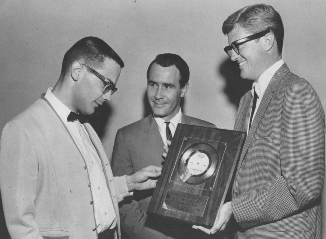
Then in the early 1960's, having moved up to my first big station in Denver, I rediscovered the Rolf Harris recording and began programming it on KTLN. Almost overnight it duplicated the reaction received years earlier at KOBH . This time Epic records obtained the rights to the recording and rushed it to record stores in Denver. Within a month, "Kangaroo" had become a top ten hit nationally, prompting the local Columbia/Epic promotion executives to award me with my very first gold record. It would be the start of a collection of nearly a hundred in the years ahead.
Ray Durkee, ushered in the night time with his program beginning at six pm. �Durk� was to my knowledge the first to coin the radio term �oldies�. Rock music made its entrance in the mid to late 1950�s, with only those current hit records played on radio. Those recordings that dropped from the best selling surveys were discarded, considered �dead�. A station�s Top 30 hits largely came from Billboard or Cashbox survey�s of the nations top selling hits. This was later expanded to the Top 40 hits by the same trade publications.
Each disc jockey on the station was responsible for his own rack of record�s that were to be removed at the end of his time period and locked up for safe keeping in his personal file cabinet. Arriving at work, Ray Durkee discovered he had forgotten the key to his own file drawer. The preceding disc jockey deposited his records in a cabinet, locked it and rushed off to spend the weekend with his family. Durk, having no current hits to play found some �past hits� and began programming them as �oldies�. The station was flooded with favorable response, thus �Oldie weekends� was born and became a regular feature on KTLN. Within a few months, competing stations in Denver discovered their own �oldies� and began programming them too. It was still a dozen years before radio stations actually began to program �oldies� full time.
Tom Breneman was heard over a large area of the rocky mountain west due to the night time sky wave of KTLN. Unfortunately, his Denver days were considerably shortened when the stations program director, Joe Finan, erupted in a screaming match that sent poor Tom back to southern California.
Finan demanded each of KTLN�s newscasts to be written and delivered in a sensationalized way. Illustrating, the death of a young lady in a traffic accident, Finan suggested, �The savagely broken body of the young lady was without an arm, found elsewhere in the carnage�. Attention getting, yes I thought, but this type of reporting would certainly take us into an area unheard of in news reporting. Finan explained he wanted to bring more of �an awareness� to the sound of the stations news.
�Be descriptive�, he ordered.
Breneman followed his disc jockey show by covering the news for the first two hours of my show. Hearing of a tragic automobile accident in Wyoming that claimed the life of a young female, Tom began his news with the headline, �Death wails on the Wyoming highways�. Immediately, the telephone lines lit up with complaints from listeners, shocked to hear such a descriptive headline. One particular lady wanted the name of the stations manager and angrily threatened to notify the dreaded FCC. When she also asked for the name of the disc jockey, I placed a call to Joe at home.
Within a short period of time, the door to the studio swung open with Joe Finan dressed in only his pajama�s, cornering a red faced Tom and ordering him to �clean out your damn drawer, you�re no longer employed here�.
Ushering him out the door Finan returned to explain, it would look best for the station that management took immediate action in light of �Tom�s insensitive stupidity�.
Finan did take delight in labeling me, �Pearl Harbor�. Indicating my telephone call to him was in some way likened to the sneak attack that started World War II.
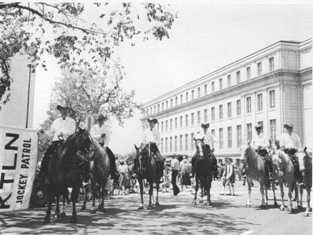
Our KTLN disc jockey patrol rode in the annual Memorial Day parade in an era when the nation proudly honored those who died in service of their country.
Within a few years Al Julius would join me a KQV. Capturing the steel city where he would become a major radio and TV star, Al would even spend some time at KABC-Los Angeles as a news commentator.
Richard K. Wheeler was the son of the legendary Montana senator Burton K. Wheeler. It was apparent that �Dick� Wheeler was terribly uncomfortable being the owner of a rock and roll Top 40 radio station. He seemed more at home with his high society friends.
Disc jockey Ted Atkins, fresh from Kansas City, joined us at KTLN before moving on to KIMN and KDAB. His future would include stints as program director at KHJ and KFRC before entering the ranks of ownership.




Ted Atkins Al Julius Dex Allen George Wilson
A young DJ named George Michael at KICN, was my competition for awhile before heading east to a career at WFIL and finally a very successful stint with his own George Michaels Sports Machine on national television.
The mid 1950�s, known as the Eisenhower years, found very little acceptance for profanity of any kind. A time that forbade words like pregnant and toilet, even the word hell could only be used by the pastor of the church as a reminder of our destination were we to continue using the lord�s name in vain. Pushing the �norm� just a little further than accepted, KIMN�s morning man, Royce Johnson, caused a public outcry to the FCC when a humorous bit called for the sound of a flushing toilet. Owner Cecil Heftel would be required to divest himself of the station and in disgust he took up residency on an island in the Pacific called Hawaii, his legacy in broadcasting just beginning.
Jimmy Dean, the sausage man, had a #1 hit with �Big Bad John�, but only after re-releasing the recording changing the lyrics from �one hell of a man� to �a big, big man�. The Kingston Trio lyrics �and I don�t give a damn about a Greenback Dollar� found airplay only when they clapped their hands instead of using the forbidden word. Little Richard escaped question when �Good Golly Miss Molly, You sure like to ball� was thought to mean the use of the word �ball�, meant party or dance. On the other hand, �a fag�, was a cigarette, being �a mother� was someone dear and �Here comes Santa Claus� continued to add royalty�s to Gene Autry�s bank account with no complaints of any kind.
The late 50�s and early 1960�s was a time for great variety in the music the public would make popular. Rock music spearheaded by Elvis Presley shared the spotlight with a number of black singers who were now being added for airplay on �white� stations.
Big orchestra instrumentals by Percy Faith, Billy Vaughn, Lawrence Welk, Bert Kaempfert, Perez Prado, Jimmy Dorsey and David Rose each had number one hits.
Domenico Modugno and Kyu Sakamoto each had number one songs in their foreign tongue with �Nel Blue Dipinto Di Blu� (Volare) and �Sukiyaki�. Not to mention a number one hit by a Singing Nun.
Novelty hits by Larry Verne, poking fun at �Mr. Custer�, Brian Hyland with �Itsy Bitsy Teenie Weenie Yellow Polka Dot Bikini�, a group called The Hollywood Argyles with �Alley-Oop� , Bobby �Boris� Pickett�s �Monster Mash�, Sheb Wooley�s �Purple People Eater� and my old friend Ross Badisariun�s (David Seville) �Witch Doctor� opened the door for his hugely successful �Chipmunk Song�, each supplying another ingredient to the menu of diversity radio stations would program to reach the mass audience.
Comedic recordings from Alan Sherman with �Hello Muddah, Hello Father� lamenting the trials of a boy away at summer camp. Many radio listeners would believe Vaughn Meader actually was President Kennedy in this satire of �The First Family�. Don Amechi and Francis Langford created hysterical laughter as �The Bickersons�. Top 40 radio even took the time to program newcomers Bill Cosby and Bob Newhart.
Peter, Paul and Mary; the Kingston Trio, The Roof Top Singers and New Christy Minstrels added folk music to the menu programmed on Top 40 radio.
Even the Morman Tabernacle choir contributed to the nation�s favorite songs with the �Battle Hymn of the Republic�.
As one of KTLN�s disc jockeys, I hobnobbed with Della Reese, James Brown, Hank Ballard, Jackie Wilson, the Platters, Ray Charles, Lloyd Price, the Drifters and the one hit wonders�the Penguin�s with their decades long hit of �Earth Angel�. Not to forget hit makers, Johnny Tillotson, Nancy Sinatra, Tommy Sands, Fats Domino, Brook Benton, Johnny Mathis, Chubby Checker, Gene Pitney, Del Shannon, Roy Orbison, Vic Dana, Bobby Vee, Peter, Paul and Mary and Paul Anka. All these years later some still check in from time to time.
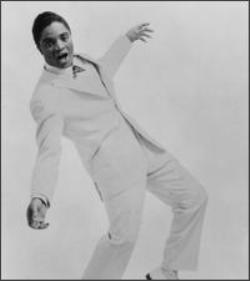
Jackie Wilson
I�ll always remember Jackie Wilson as one of the most exciting performers I�ve ever known. He could sing rock, "Lonely Teardrops" and big ballads "Night" and "Alone at Last". As he worked the audience, I noticed several young white women taunting him in return. This was during a time when inter racial relationships were illegal in most states.
I introduced Chubby Checker on both of his Denver appearances in 1960 and 1962. �The Twist� was a top ten hit for teenagers in 1960, but repeated even more so as adult�s world wide began dancing �The Twist� making it the #1 song of 1962.
Jimmy Bowen as a rock artist himself had one hit record� �I�m sticking with you� before his singing career ended. Touring with a more successful Canadian act, Buddy Knox and the Rhythm Orchids, Bowen had taken a job as a disc jockey at a Colorado Springs radio station owned by Ken Palmer. I still remember his late night visit to KTLN, where he asked to watch me work to �gain some tips�. Palmer told me �Jimmy�s down on his luck�. Jimmy Bowen�s greatest days were ahead of him as he would go on to great success resurrecting the career�s of Frank Sinatra & Dean Martin and creating new superstars like Garth Brooks and Reba McIntyre.
I will always remember Ken Palmer, as the person who did most to further my broadcasting career. Telephoning me on my 26th birthday and inviting me to lunch, Ken wanted to meet �somewhere discrete where we can talk�. Earlier, Ken had expressed an interest in my becoming program director of KIMN, but contractual problems with KTLN prevented it. This time he wanted to prepare me for something even more exciting, a move up to a top ten market. Seems ABC radio president Harold L. Neal, Jr., was a friend of Ken�s who valued the Denver owners opinion. Palmer recommended �patience, �something good is about to happen�.
Six weeks later, I joined the rest of a stunned world watching the TV coverage of the assassination of President John F. Kennedy. My mind played over and over the day I shook his hand, welcoming him to Denver. It was a sad time as we passed Thanksgiving and entered into the Christmas holiday�s unaware I was about to receive a wonderful Christmas gift�.being named program director of KQV � Pittsburgh.
A few years would pass before I returned to Denver to consult KTLN�only this time it was KTLK � Denver�s Double K.
The station would be a springboard for several other talented performers. Tim Kelly showed up on the doorstep of my home in California, that was enough to invite him to move from KTSA in San Antonio to Denver where he met and married our KTLK receptionist, Ev Kelly. They would in later years share their talents with radio listeners in Washington D.C., Boston, Louisville and Chicago before joining me at KFI. While Tim moved on to KIIS - Los Angeles, he and Ev gave birth to a company that would become the nations largest radio syndication company - Premiere Radio.
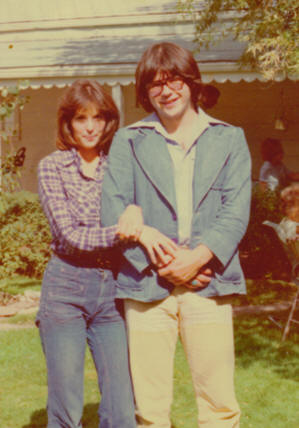
Evelyn & Tim Kelly 1970's
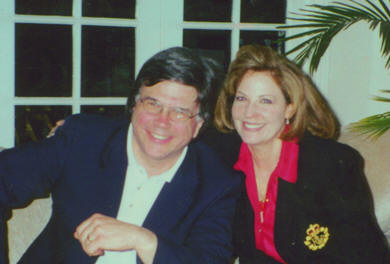
Tim & Evelyn Kelly 2005
Big Ron O'Brien ruled nights on KTLK after being discovered in Iowa. He would become legendary when I moved him to WCFL-Chicago and KFI-Los Angeles. Ron was also top rated in afternoon's on LA's KIIS.
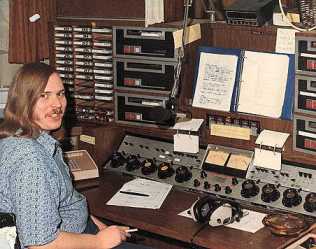
Big Ron O'Brien at KTLK
KTLK's music director, Dennis Constantine took his programming talents to Boulder and Portland, Oregon, where he became program director of one of that cities top rated radio stations, KINK-fm.
Joe Montione was with KTLK before I moved him to Y-100 in Miami and gave him a new name...Banana Joe. Another excellent on-air talent, Bobby Rivers moved from KTLK to my client station in Tucson, KTKT.
KTLK's general manager, Frank Scott in future years would head up the Voice of America for the federal government.
The radio stations owner, Harrison Fuerst, a Cleveland lawyer, was a great friend and one of my favorite owners.

Under the ownership of Welcome Radio, Inc. KTLK would make one final attempt at replacing KIMN as Denver�s remaining AM Top 40 station before becoming a full time talk station.
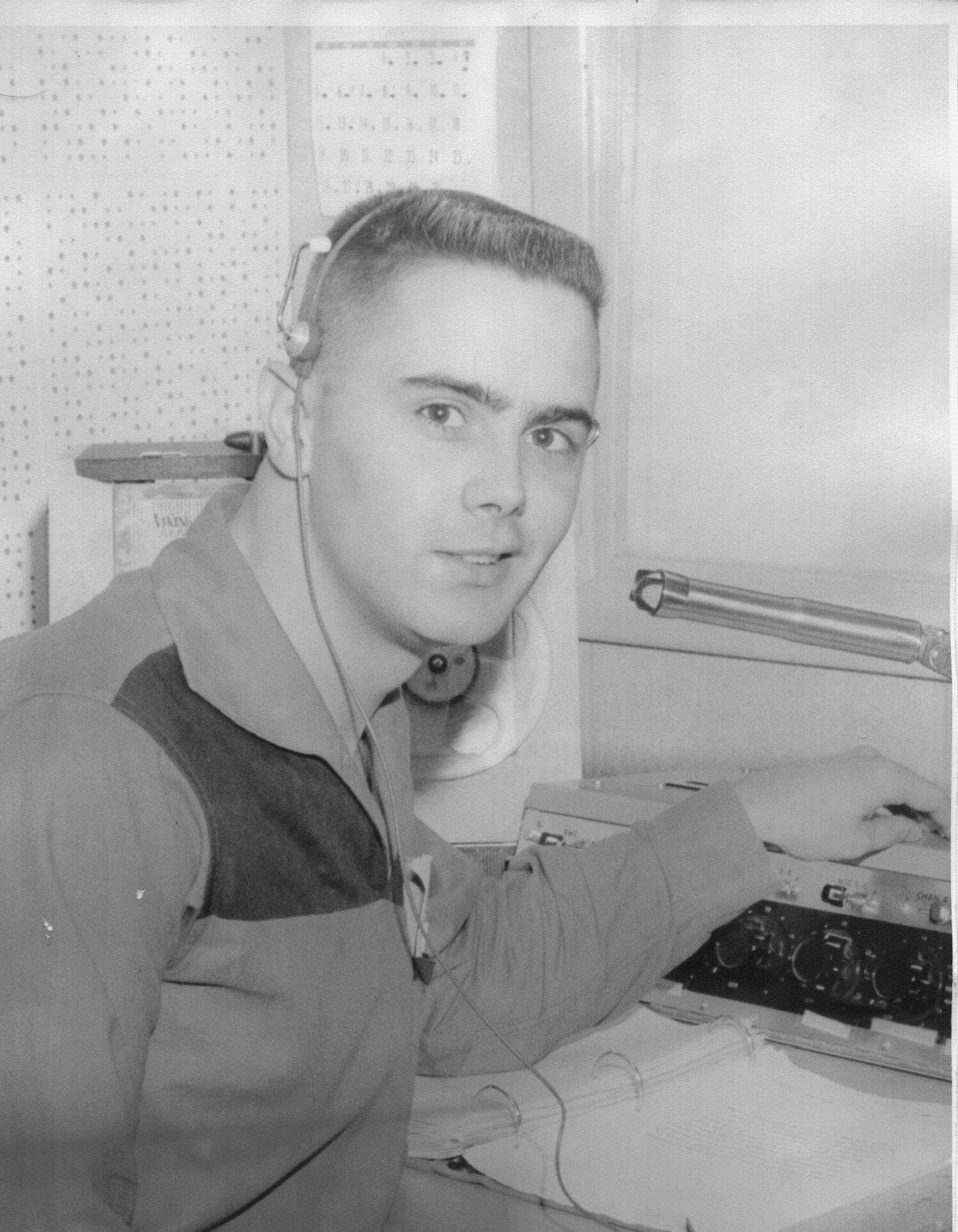
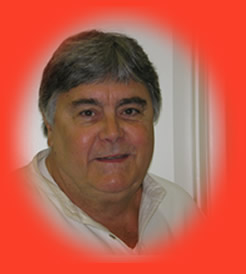
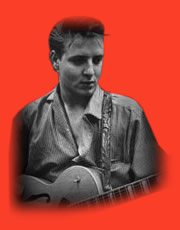
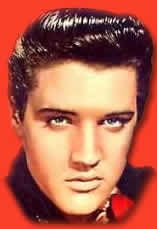
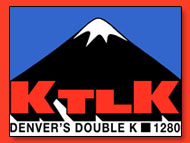
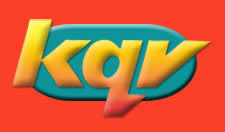
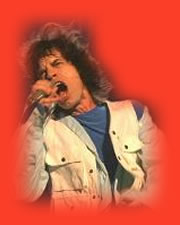
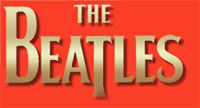
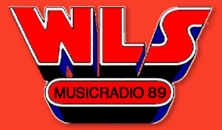


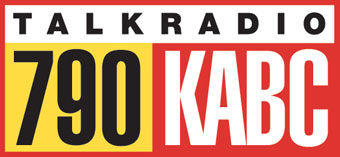
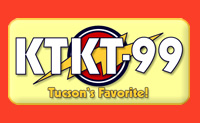
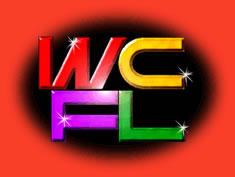


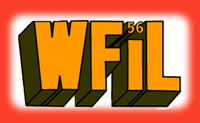

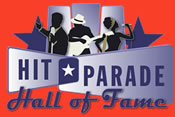
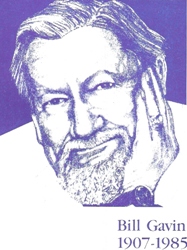

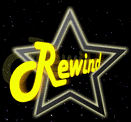

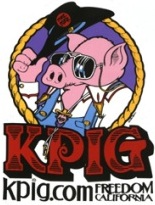
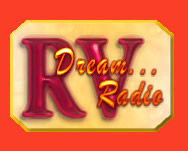



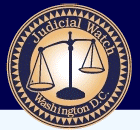
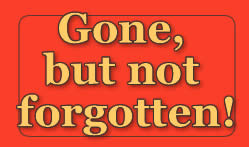




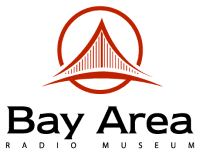
.gif)

